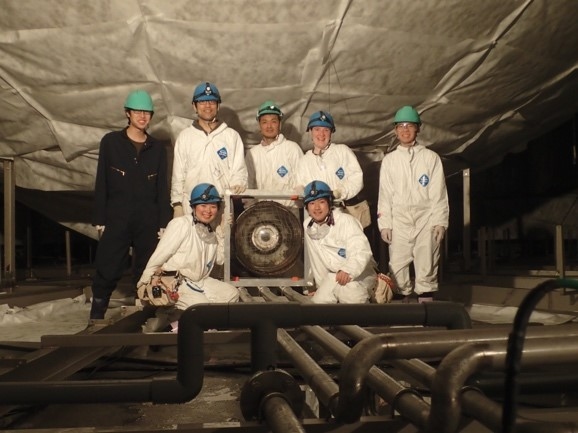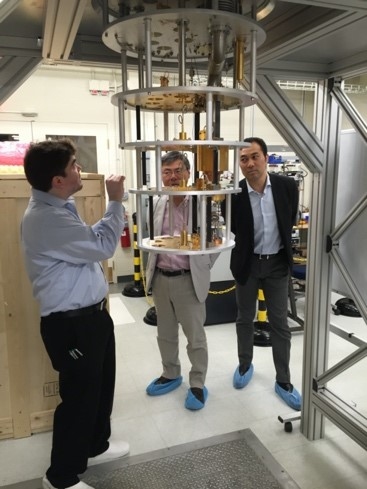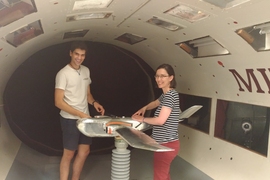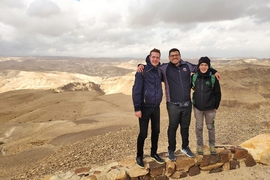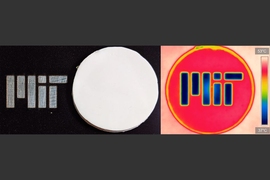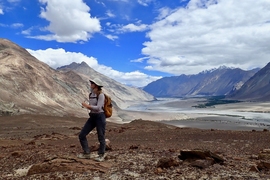MIT is a focal point for the type of collaborative problem-solving that makes an impact around the world. Faculty and students on campus benefit from a shared passion and complementary knowledge as they work to advance science and technology. This “MIT mindset,” however, is not just limited to campus, as evidenced by the plethora of faculty collaboration with institutions across the globe, and MIT International Science and Technology Initiatives (MISTI) continues to make many of these research partnerships possible.
MISTI’s Global Seed Funds (GSF) program helps MIT faculty develop exciting new connections by supporting early-stage collaborations with researchers at peer institutions worldwide, creating research opportunities not available on the Cambridge, Massachusetts, campus.
“[Our GSF award] provided the opportunity to extend our current tools for analysis and quantification of the individual acoustic cues to contrastive speech sounds of words, originally developed for typical speakers of American English, not only to the domain of analysis of Parkinsonian speech but also to Spanish,” says Principal Research Scientist Stefanie Shattuck-Hufnagel of her 2018 collaboration with the Universidad Politécnica de Madrid.
“This unique opportunity provided … the first demonstration of the applicability of our cue-based approach to the analysis of systematic modifications of speech sounds in a new language, Spanish, for which the system was not originally developed, thereby providing a demonstration of the potentially universal applicability of this approach across the human language family.”
When the global spread of Covid-19 suspended international travel, previous fund award winners found innovative ways to move their projects forward virtually and plan to resume in-person collaboration soon. Faculty also continued to prepare for a future that included global travel, creating new partnerships and projects for the 2021-22 application cycle.
This year, the 27 funds that comprise MISTI GSF received 155 MIT applications. Ninety projects from 30 departments across all five schools in the Institute shared in awards totaling $1.9 million. This year's awards bring the total amount to $21 million over the 13-year life of the program. Over 70 percent of all MIT faculty members have applied for seed funds, with many applying for multiple awards over the past decade. “I have been very fortunate to have benefited from several MISTI grants,” says awardee Yuriy Roman, professor of chemical engineering.
Beyond the benefits for faculty, GSF projects also create opportunities for students to participate in significant academic exploration with international researchers. The majority of GSF teams include students from MIT as well as international collaborators, all actively broadening both their laboratory and cultural experience, gaining skills that extend beyond science and technology.
“This grant not only benefited the students involved directly, but will also be helpful in their future scientific careers,” says Timothy Lu, associate professor of biological engineering and electrical engineering and computer science, recipient of a 2017 award. “Short stays increase scientific collaboration, create networks, and improve the scientific skills of those who have the opportunity to see how other labs are set up and learn new scientific approaches.”
These impactful partnerships often turn into longstanding research relationships with teams uniting to address the critical challenges that require international solutions. Seed fund projects also often lead to additional funding leveraged from early results and opportunities for publication team-wide.
“The collaboration has been nothing short of amazing,” says Roman of his 2017 award. “We have many students fully engaged on the project from both sides, with multiple PIs [principal investigators] and a couple high-end papers on the docket."
The next call for proposals will be in mid-September.
MISTI creates applied international learning opportunities for MIT students that increase their ability to understand and address real-world problems. MISTI collaborates with partners at MIT and beyond, serving as a vital nexus of international activity and bolstering the Institute’s research mission by promoting collaborations between MIT faculty members and their counterparts abroad.
